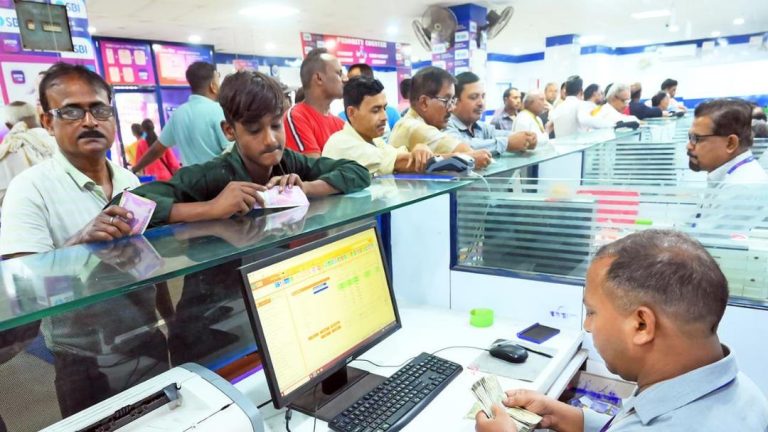
Why has the Nifty index remained flat for an entire year?
The Indian stock market has been under pressure for the past year, with the Nifty 50 index barely moving despite strong earnings from major firms. The index, which tracks the performance of the top 50 companies listed on the National Stock Exchange of India, has been stuck in a narrow range, failing to breach the 12,000 mark. This is unusual, given the strong momentum in the Indian economy, with GDP growth rate touching a five-year high of 7.2% in the third quarter of FY20.
So, what’s holding back Indian equities? The answer lies in a combination of weak global cues, tariff threats from the US, and subdued investor sentiment. Let’s break down each of these factors to understand their impact on the market.
Weak global cues
The global economy has been experiencing a slowdown, with many countries struggling to maintain their growth momentum. The US, China, and the European Union are all facing challenges, including trade tensions, slowing consumer demand, and concerns over Brexit. This has led to a decrease in investor confidence, with many opting for safe-haven assets such as gold and government bonds instead of stocks.
The impact of weak global cues is evident in the Indian market. The rupee has slipped to a five-month low against the US dollar, making imports more expensive and adding to inflationary pressures. This has led to a decline in consumer spending and a slowdown in economic growth.
Tariff threats from the US
The US has been a major trading partner for India, with bilateral trade between the two countries totaling over $150 billion in 2019. However, the US has been imposing tariffs on various Indian products, including aluminum, steel, and certain chemicals, citing national security concerns. This has led to a decline in Indian exports to the US and a subsequent impact on the economy.
The impact of tariff threats is not limited to exports alone. The uncertainty surrounding tariffs has led to a decline in foreign direct investment (FDI) in India, as investors become cautious about investing in a market that is facing trade tensions.
Subdued investor sentiment
Investor sentiment has been subdued in recent times, with many investors opting for safe-haven assets instead of stocks. This is due to a combination of factors, including the slowing economy, high valuations, and concerns over corporate governance.
The market is also grappling with the impact of the ongoing corporate governance crisis, which has led to a decline in investor confidence. The crisis has been triggered by allegations of corporate mismanagement and governance lapses at some of the country’s largest companies.
What’s next for the Nifty index?
So, what’s next for the Nifty index? As investors await cues from the US Fed, questions remain on what’s holding back Indian equities. The answer lies in a combination of the factors mentioned above, including weak global cues, tariff threats from the US, and subdued investor sentiment.
However, there are also reasons to be optimistic about the Indian market. The country’s economy is expected to grow at a robust pace in the coming years, driven by a combination of factors including government spending, infrastructure development, and private consumption.
The government has also been taking steps to boost the economy, including a reduction in corporate taxes and an increase in the allocation for infrastructure development. These measures are expected to have a positive impact on the economy and the stock market in the long run.
Conclusion
In conclusion, the Nifty index has remained flat for the past year due to a combination of weak global cues, tariff threats from the US, and subdued investor sentiment. However, there are also reasons to be optimistic about the Indian market, including the country’s robust economic growth and government efforts to boost the economy.
As investors, it’s essential to stay informed about the market and its various factors. By understanding the impact of weak global cues, tariff threats from the US, and subdued investor sentiment, investors can make informed decisions about their investments and navigate the market with greater ease.
News Source:






